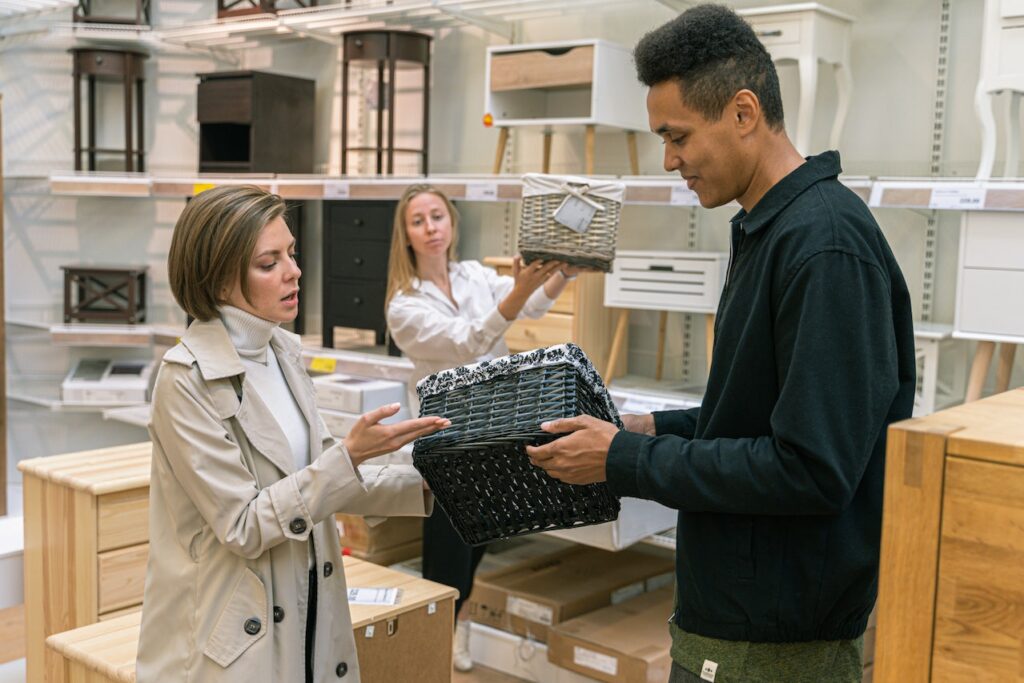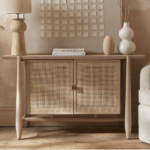Adam Hankinson, Managing Director at Furniture Sales Solutions, talks about the importance of keeping it simple, or in other words, to KISS the customer.

KISS – Keep It Simple Sir….
Have you ever walked into a shop and felt overwhelmed by choice and then a salesperson bombards you with complex information? Well, it happens in the furniture retail world too.
I was recently doing some in-store training at a popular furniture retailer when I overheard a salesperson discussing an aniline leather sofa with a customer. They said, “That’s aniline leather….” The customer looked confused, and I realized this was a common issue among salespeople. It’s easy to slip into autopilot mode and assume customers understand technical terms.
So, I pulled the salesperson aside and asked why they had mentioned aniline leather to the customer who didn’t have a clue about it. This happens when we get used to our industry jargon and forget to put ourselves in the customer’s shoes.
That’s when the KISS principle comes into play (Keep It Simple Sir). If you can explain something in a simpler way, you should. For instance, instead of saying, “Full-grain leather is the unaltered top layer of the hide with a natural grain, breathability, and authentic appearance,” you could say, “this is a really great quality leather, it’s suitable for use in a really busy household, and it’s really easy to maintain”.
Another example is where there are ten swatches available for a particular sofa and you offer the customer ALL the options- your definitely better off only showing the customer the swatch with the display cover in before you overwhelm them with too much choice.
To hone your new “Keep it Simple” philosophy start by making a list of Frequently Asked Questions (FAQs) that you encounter regularly. Even a handful of questions can be a good start. Develop straightforward, benefit-focused answers for each, and this will instantly boost your confidence when dealing with customer inquiries. For example, customers often ask why one sofa is priced at £4000 while another seemingly similar one is £2000. In reality, they might be more inclined to buy the higher-priced sofa, but they need convincing. (A good answer is to say- “that’s a great question- both are great but the 4k one is our Rolls Royce. Everything about THIS model is of the highest quality and specification-what do you like about it?”
To answer these questions well, you need to know why the more expensive sofa is worth the price AND how to communicate that in the clearest way. Talk about the specific features and benefits of that sofa to show its value. Don’t use complicated words, but instead, explain the benefits in a way that customers can understand.
Having a good understanding of products gives you an advantage against your competitors. It helps you engage with customers, build trust, and show that you’re an expert. When you confidently talk about the unique things each product offers, like how well it’s made, what materials were used, or if it has a special design, it catches the attention of buyers and makes them see the value.
Plus, when you know a lot about your products, you can make personalized recommendations based on what each customer likes and needs. By understanding different furniture styles, sizes, and materials, you can suggest things that match their tastes, needs and wants and make their shopping experience better.
In sales, it’s important to know about the products you’re selling, but too much knowledge is dangerous if it overwhelms the customer. Answering common questions well and explaining things in simple terms will build trust, create great understanding for your customer and increase sales. By improving your knowledge about your products, you’ll become more confident and this will come across to the customer. By keeping this knowledge simple, relevant and easy to understand it will help the customer make their decisions and guess what…. they’ll buy more from you! It’s all in the KISS!















